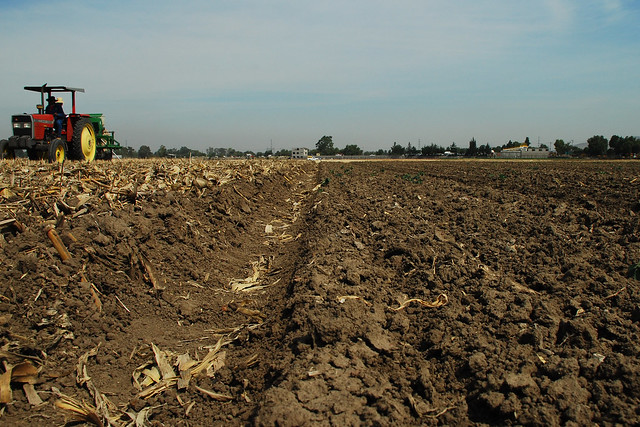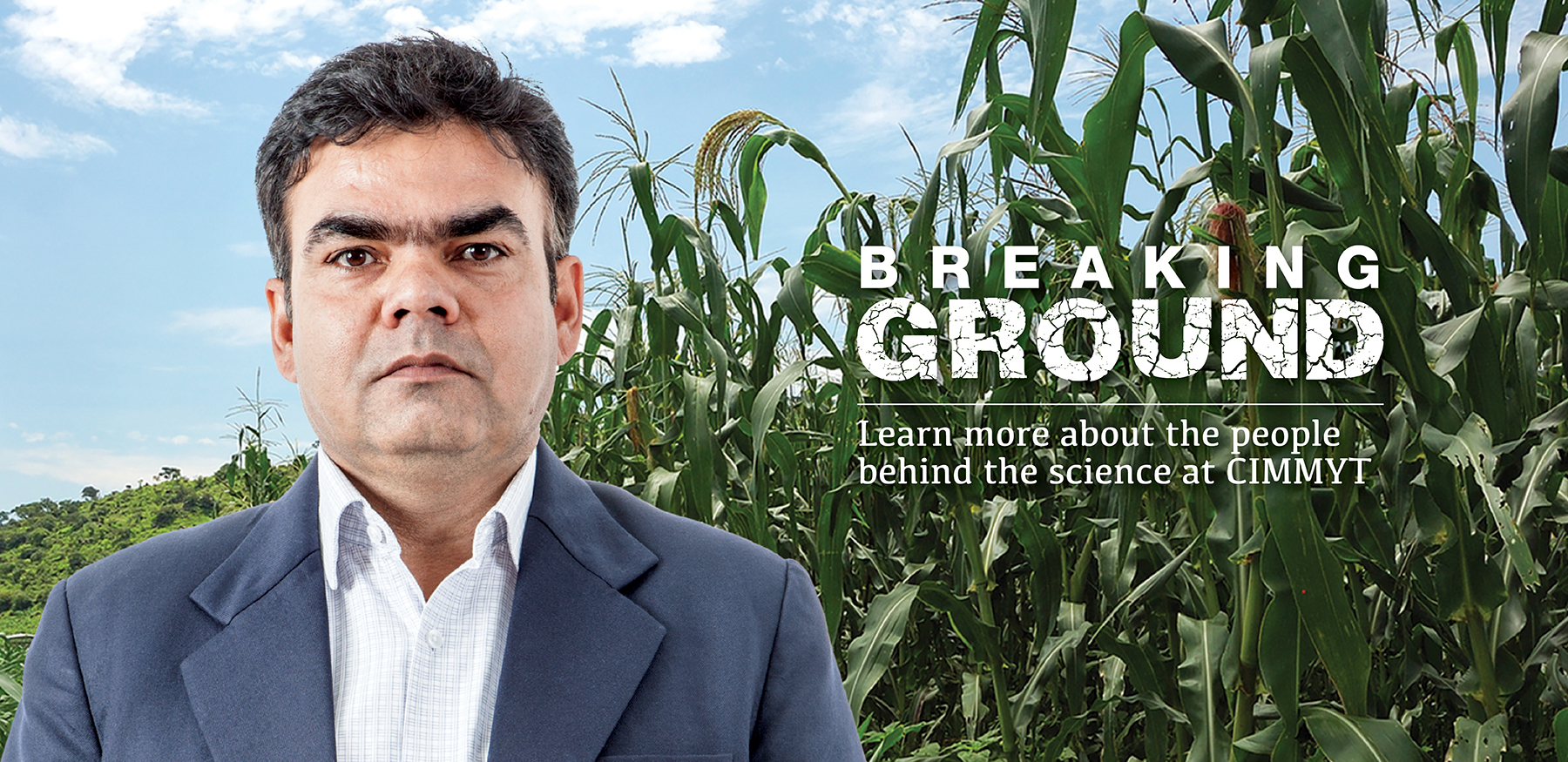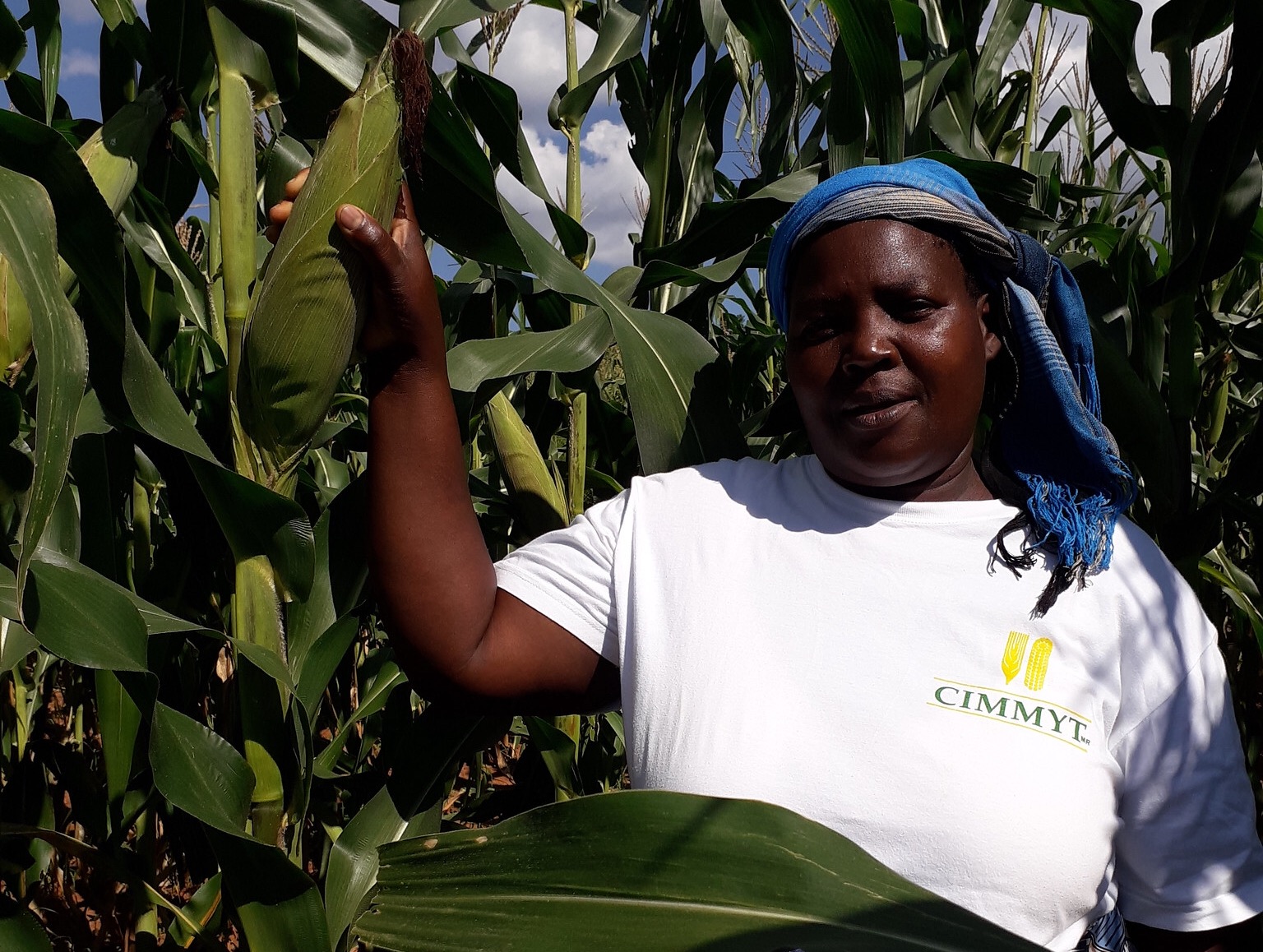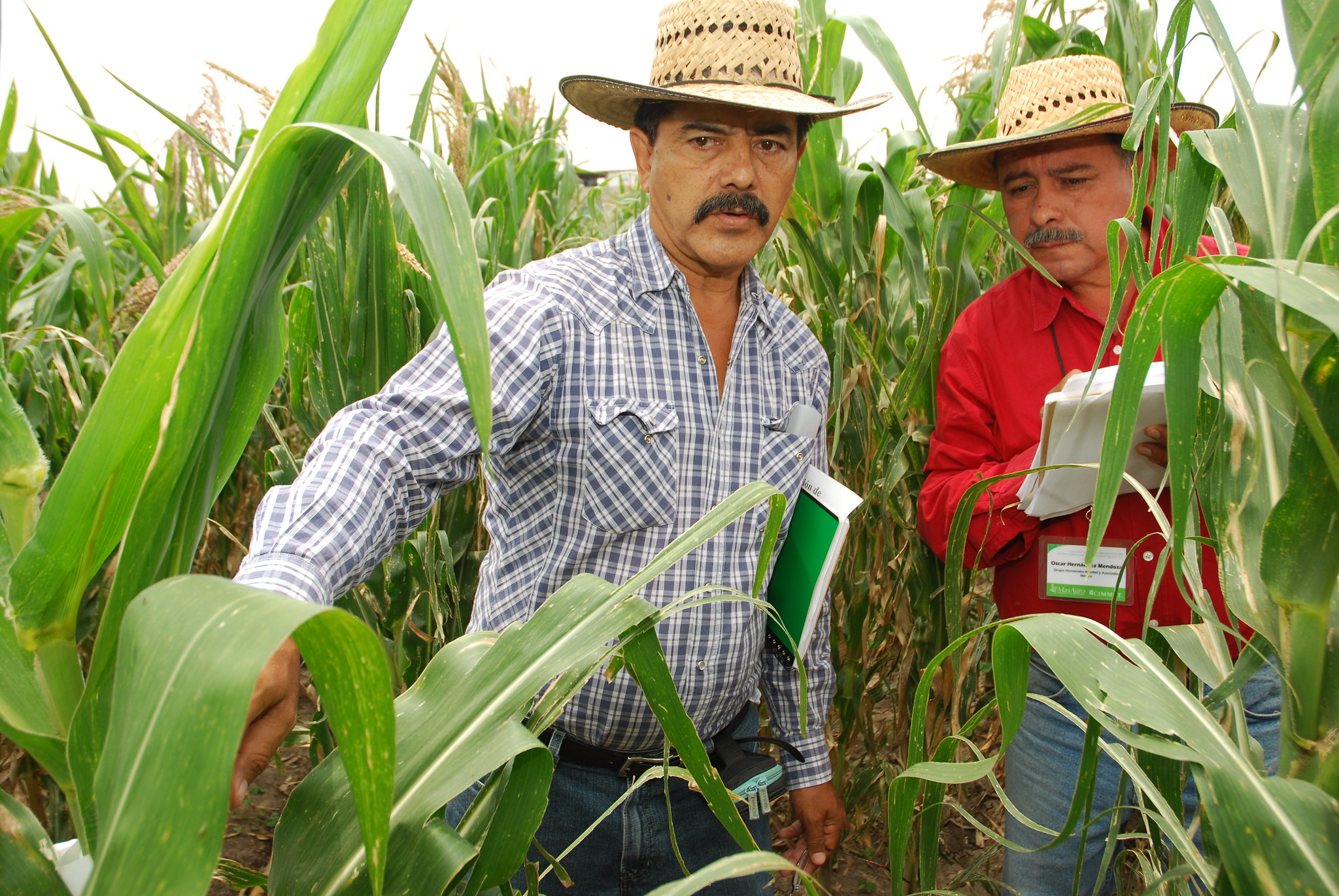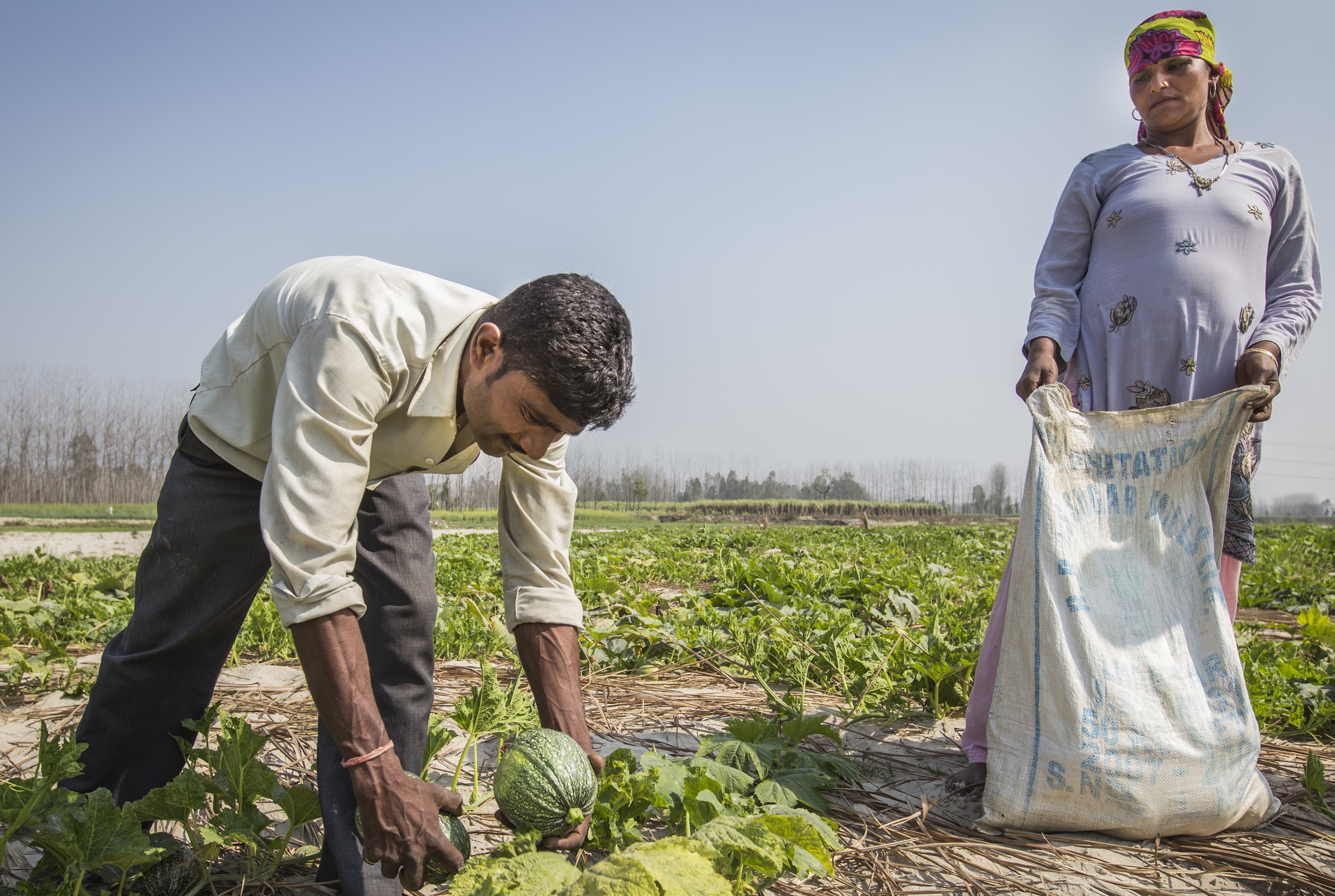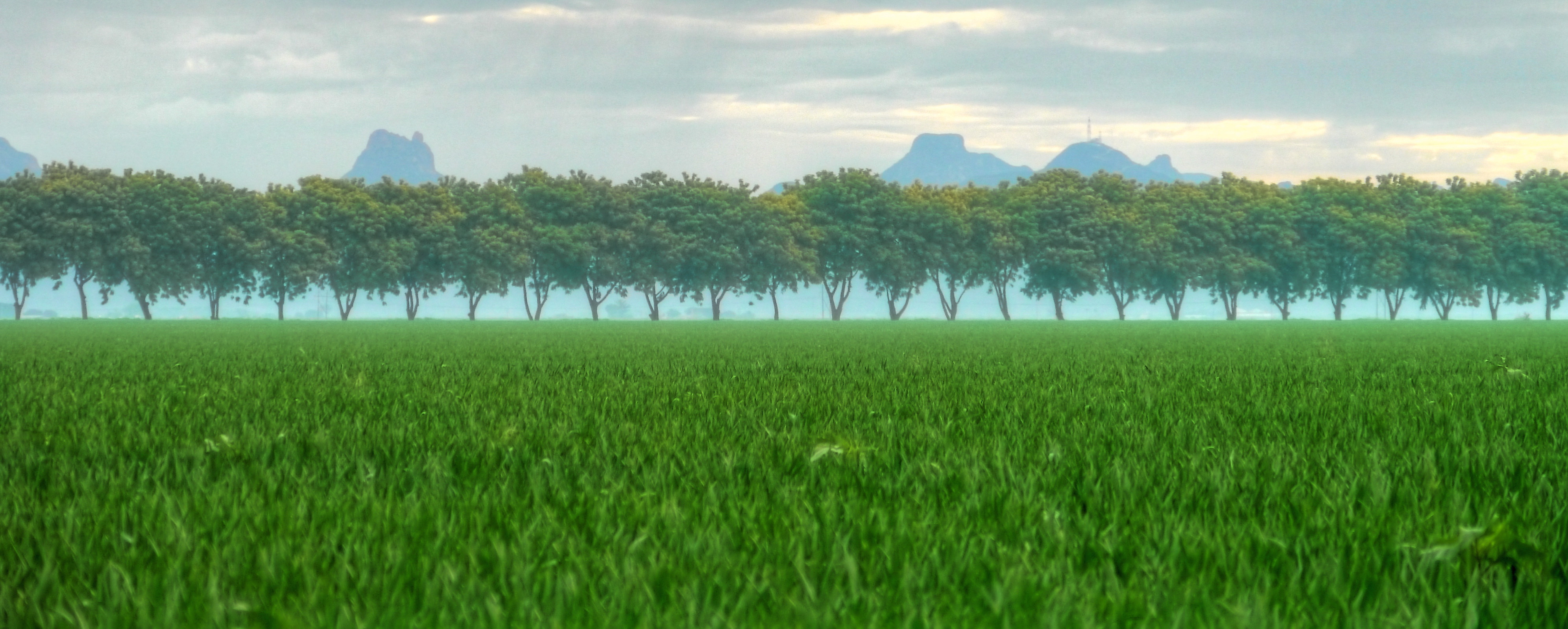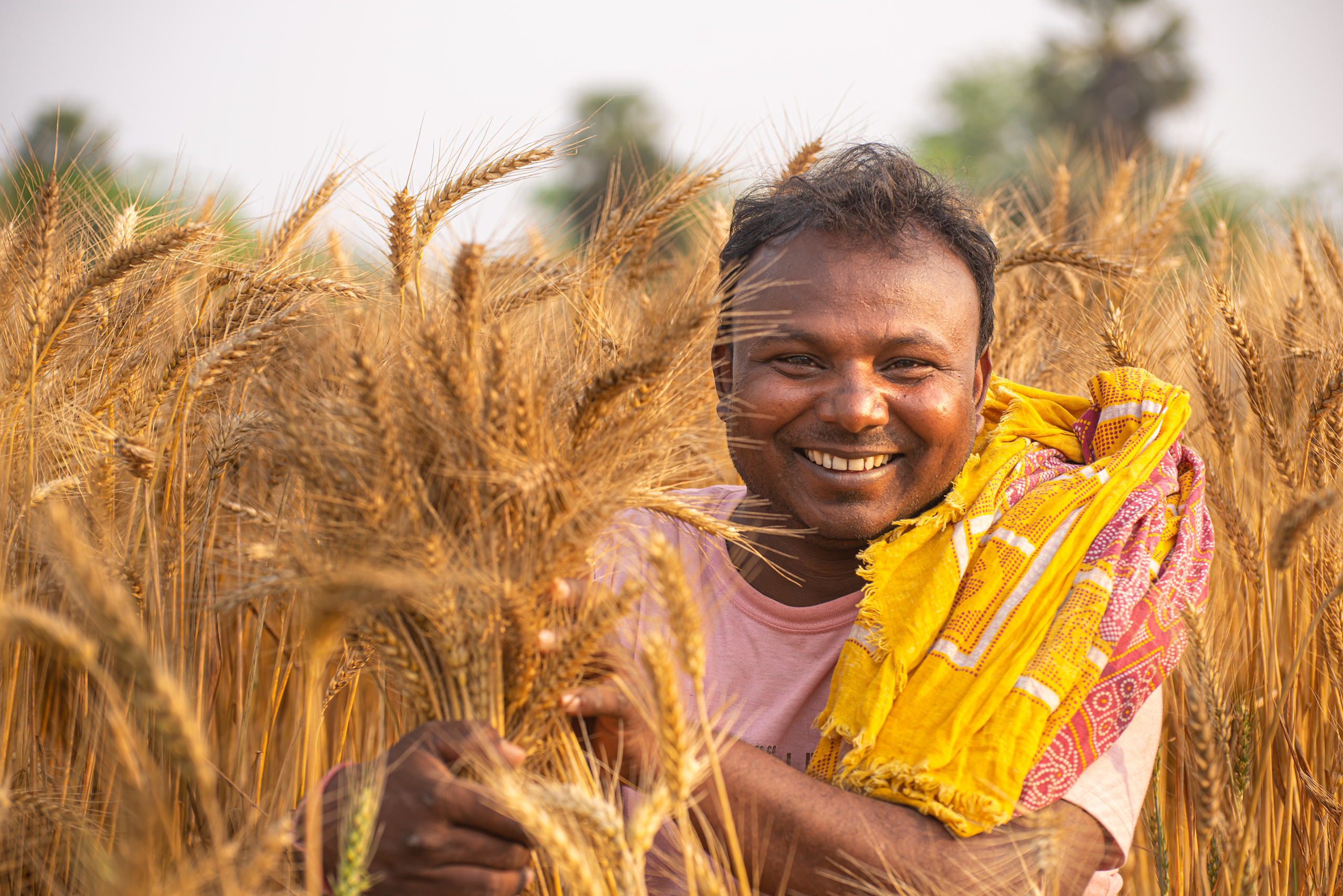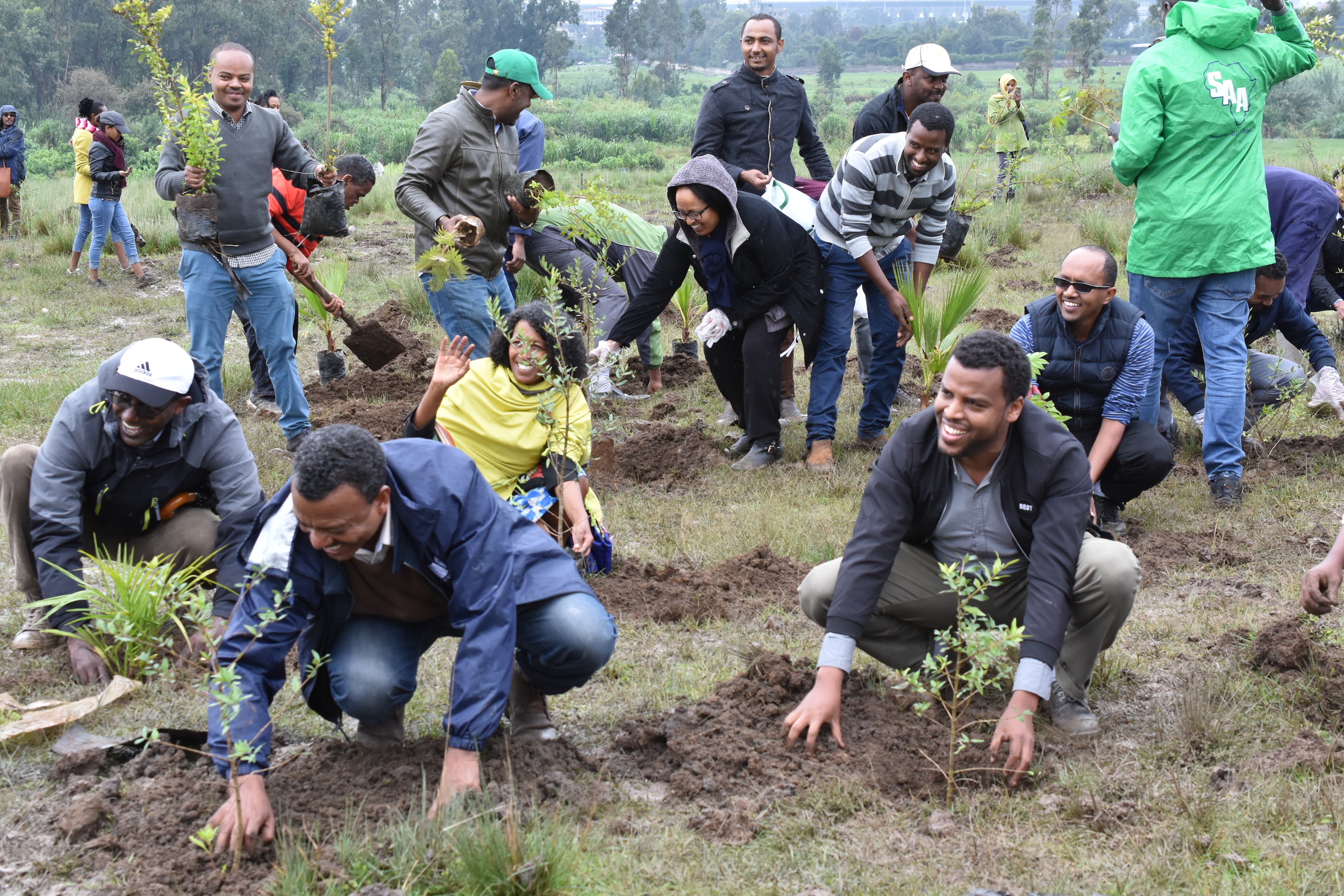Climate adaptation and mitigation
Climate change threatens to reduce global crop production, and poor people in tropical environments will be hit the hardest. More than 90% of CIMMYT’s work relates to climate change, helping farmers adapt to shocks while producing more food, and reduce emissions where possible. Innovations include new maize and wheat varieties that withstand drought, heat and pests; conservation agriculture; farming methods that save water and reduce the need for fertilizer; climate information services; and index-based insurance for farmers whose crops are damaged by bad weather. CIMMYT is an important contributor to the CGIAR Research Program on Climate Change, Agriculture and Food Security.
October is World Food Prize month at William Penn University
 Climate adaptation and mitigation
Climate adaptation and mitigation
Source: Oskaloosa Herald (30 Sep 2019)
This year’s speaker is Bram Govaerts, the global Director Innovative Business Strategies at CIMMYT.
Scientists propose a low-cost, reliable system to measure soil organic carbon
 Climate adaptation and mitigation
Climate adaptation and mitigation
Using existing sources of information, quantifying soil organic carbon would be a first step to increasing it, a crucial way to support climate change mitigation and agricultural resilience.
Breaking Ground: P.H. Zaidi helps Asian farmers get healthy harvests despite climate variability
 Climate adaptation and mitigation
Climate adaptation and mitigation
CIMMYT maize physiologist supports development of new climate-resilient maize varieties that help resource-poor Asian farmers protect their food and income security.
Toolkits to deal with Asian droughts
 Climate adaptation and mitigation
Climate adaptation and mitigation
Source: The Third Pole (23 Sep 2019)
CIMMYT, ICIMOD and partners launched a Regional Drought Monitoring and Outlook System for South Asia.
Climate-smart agriculture: A winning strategy for farming families in El Niño seasons
 Climate adaptation and mitigation
Climate adaptation and mitigation
A recent study from the International Maize and Wheat Improvement Center (CIMMYT) shows that conservation agriculture and other climate-smart technologies are increasing yields and farmer resilience amidst drought episodes in southern Africa.
Kenyan maize farmers set to benefit from development of improved varieties
 Climate adaptation and mitigation
Climate adaptation and mitigation
Source: News Ghana (13 Sep 2019)
CIMMYT has developed a variety of seeds to meet the varied needs of Kenyan farmers.
New drought monitoring system will reduce climate risks for South Asian farmers
 Climate adaptation and mitigation
Climate adaptation and mitigation
After Afghanistan, Nepal, and Pakistan, the Regional Drought Monitoring and Outlook System extends its coverage to Bangladesh.
Warmer night temperatures reduce wheat yields in Mexico, scientists say
 Climate adaptation and mitigation
Climate adaptation and mitigation
International gathering highlights cutting edge efforts to improve yields, nutrition, and climate change resilience of a globally vital staple food.
Alternatives to burning can increase Indian farmers’ profits and cut pollution, new study shows
 Climate adaptation and mitigation
Climate adaptation and mitigation
Published in Science, the article provides evidence for national policies that block stubble burning and promote no-till mechanization to manage crop residues.
CIMMYT and CGIAR staff join Ethiopia’s record-breaking tree-planting campaign
 Climate adaptation and mitigation
Climate adaptation and mitigation
People across the country planted more than 350 million trees in a day to fight deforestation and climate change.
Strengthening wheat production in Africa
 Climate adaptation and mitigation
Climate adaptation and mitigation
Source: Sci Dev Net (31 Jul 2019)
CIMMYT scientists stress the importance of increasing wheat yield and tolerance to drought for a food secure Africa.
Innovation rush aims to help farmers, rich and poor, beat climate change
 Climate adaptation and mitigation
Climate adaptation and mitigation
Source: Thomson Reuters Foundation (29 Jul 2019)
CIMMYT is working with partners to breed wheat that better copes with heat, to help farmers around the world.
The new challenges of wheat improvement
 Climate adaptation and mitigation
Climate adaptation and mitigation
In an interview for BBC Newsday, CIMMYT senior scientist Velu Govindan spoke of today’s challenges for wheat breeders.
Int’l Wheat Congress: Bangladesh’s success sung in Saskatoon
 Climate adaptation and mitigation
Climate adaptation and mitigation
Source: Dhaka Tribune (24 Jul 2019)
With CIMMYT support, Bangladesh developed blast resistant wheat in the quickest possible time.

